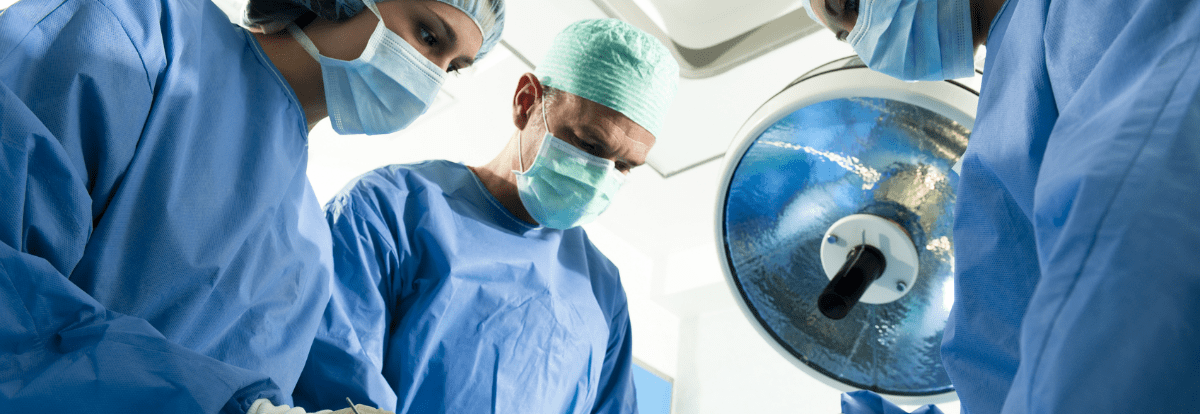Category: Medical

EpiPen failures not to be ignored
Recent data surrounding reported EpiPen failures should not be ignored. Data reviewed has found that, in the last few years, there has been hundreds of reports of EpiePen failures that have led to a number of hospitalisations, and potentially some deaths.
One issue reported after a failed delivery from an EpiPen was the needle sticking out of the device at an angle, preventing delivery of lifesaving adrenaline that can stop an allergic reaction from killing someone.
Given the importance of lifesaving devices, these reported EpiPen failures cannot be ignored.

Calls for UK inquiry into sodium valproate epilepsy drug
There are calls for a UK inquiry into the sodium valproate epilepsy drug that has been linked to birth defects and developmental issues in children.
It’s also understood that UK health professionals were warned about the dangers of people using sodium valproate epilepsy drugs, but little seems to have been done – especially in the past – to ensure users were informed of the risks and were able to make decisions as to the use of the drug.
There are also questions over whether the drug should be classed as safe at all, and the HSE is reportedly looking at the issue. We may see a UK inquiry into the side-effects soon.

Group Action Lawyers contacted for help after NHS Breast Cancer Screening Scandal
The Group Action Lawyers have been contacted for help after the news broke about the NHS Breast Cancer Screening Scandal. Individuals who did not receive their invitation for breast cancer screening and have since developed breast cancer, or families of patients who have passed away because the patient was not offered screening, may be entitled to take legal action.
A computer glitch has been blamed for the error that resulted in some 450,000 women aged between 68 and 71 reportedly not receiving their invitation for breast cancer screening because a computer program is said to have had the cut-off age at 70 by mistake. What’s worse is that it has taken nine years for the problem to be identified, with the glitch occurring sometime in 2009.

Pelvic mesh devices “rushed to market” without proper testing and warnings
Some pelvic mesh devices were reportedly “rushed to market” without proper testing and warnings for women, the legal team for a Claimant pursuing damages for pelvic mesh injuries claims.
According to the reports, manufacturer C.R. Bard moved pelvic mesh devices to market quickly and failed to properly test the devices and provide sufficient warnings over their use.
The Claimant alleges that the ‘Avaulta Solo Support System’ and the ‘Align Trans-Obturator Urethral Support System’ are unsafe, and inadequate warnings were provided to her. She has reportedly suffered debilitating injuries.
Continue Reading…

Group Action Lawyers investigating NHS Breast Cancer Screening Scandal
The Group Action Lawyers are investigating the NHS Breast Cancer Screening Scandal which has broken in the news this week.
Our Group Action Lawyers say there may be legal cases to answer for as Health Secretary, Jeremy Hunt, confirms that 270 women may have died as a direct result of an IT glitch that lead to them NOT receiving vital and potentially life-saving letters inviting them for periodic breast cancer screening.
It’s thought that women aged between 68 and 71 are affected by the glitch that occurred in 2009 that was discovered by Public Health England in January this year.
Continue Reading…

Xarelto side-effects when mixed with other drugs
The issue of Xarelto side-effects when mixed with other drugs is currently being considered as part of the ongoing court action for negligence claims against the manufacturers of Xarelto who allegedly failed to warn users of dangerous side-effects related to use of the drug.
The blood-thinning, anti-stroke drug Xarelto – also sold under the name Rivaroxaban – has been linked to internal bleeding, and negligence claims against the manufacturers are over whether they knew of the risks of internal bleeding associated with the product but failed to warn anyone.
Our Group Action Lawyers have taken on cases to investigate claims here in the UK.
Continue Reading…

Resuscitation system recall issued after risk of damage to lungs found
An error with a resuscitation system has been reported to risk damage to lungs, according to information released by the Medicines and Healthcare Products Regulatory Agency (MHRA).
Manufactured by Intersurgical, the manual resuscitation system – named as the “Bag valve mask” (BVM) – risks damage to lungs due to the potential for excess pressure being delivered by the system.
Given that the defect is with a resuscitation system, this recall is an important one as lives may be at risk as a result of it.
Continue Reading…

Cancer drug recall confirmed by UK regulators
A cancer drug recall has been initiated due to reports of excessive levels of an active ingredient used in the drug.
Pharmaceutical company AstraZeneca UK has initiated the recall, primarily for batch NG327, because the “level of olaparib polymorphic form L exceeds the registered specification limit”.
As well as the batch being recalled above, there are other batches that are a part of the recall as well, which is all said to be a part of a precautionary measure.
Continue Reading…

Risks of infection for patients where Zimmer Biomet hip and trauma instruments are used
Zimmer Biomet have been in the news in recent years over knee replacement device problems, which is one of many stories where medical manufacturers have been in the spotlight for medical device compensation claims.
You only need to look at the massive Metal-on-Metal hip implant cases to see just how big these kinds of claims are.
In this latest story, Zimmer Biomet are recalling specific hip and trauma instruments over potential risks of infections to patients.
Continue Reading…

MHRA announce recall of rectal / pharyngeal temperature sensors
Rectal / pharyngeal (orally inserted) temperature sensors manufactured by Teleflex are a part of a recent recall published by the Medicines and Healthcare Regulatory Authority (MHRA).
The issue with the devices may lead to a misdiagnosis where an inaccurate temperature reading is noted by a medical professional.
With body temperatures often being pivotal to medical diagnosis, this recall is a serious one where patients may be at risk of incorrect advice and treatment off the back of inaccurate temperature readings.
Continue Reading…

Lab error leads to thousands of cervical screening tests being reviewed
A laboratory run by Pathology First, working on behalf of Basildon and Thurrock NHS Foundation Trust, are having to redo thousands of cervical screening tests for cancer after an error was discovered.
The samples affected, which were taken between April 2016 and September 2017 for women aged between 24 and 29 who had smear tests, as well as a number of women in their 60’s, are being re-screened independently.
The results held by the lab were classed as negative, but having had some 2,500 samples re-screened, 17 women have reportedly been invited for further assessments.
Continue Reading…

Aquilon nebulisers – CE mark withdrawn and supply ceased, but many have remained on the market
Despite withdrawal of the CE safety marking for Aquilon series of nebulisers, manufactured by AFP Medical, the nebulisers have still been placed on the market. A number of devices may have been sold despite the withdrawal of the CE marking, which means the safety of the product cannot be guaranteed.
CE safety certification is vital for consumer and supplier confidence in a product, and when it comes to medical products, such approval – or withdrawal, as is the case here – can be even more important.
Continue Reading…